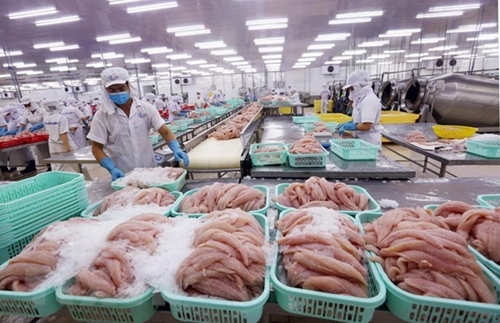September 23, 2020 | 10:26 (GMT+7)
EVFTA brings new impetus for Vietnam’s fishery exports
Shipments of Vietnamese fishery products to the EU in August, the first month the EU-Vietnam Free Trade Agreement took effect, increased by around 10 percent over July, demonstrating the positive effect of the deal.
The EU is the third largest market for Vietnam’s fishery products, after the U.S. and Japan, with a market share of 17-18 percent.
    |
 |
|
Processing Tra fish for export |
Under the EVFTA, among about 220 tax lines of fishery products with rates ranging from 0 to 22 percent, most tax lines in the high range of 6-22 percent have been reduced to 0 percent immediately after the agreement took effect. The remaining tax lines will be phased out to zero after 3-7 years.
Shrimp is a major export that has benefited from the new tariff scheme. Shrimp exports to the EU in August rose by 20 percent from the previous month, and are expected to continue to increase towards the year-end.
Tuna also has good prospects in the EU market. In the first half of August alone, the value of tuna shipments to the EU picked up 11 percent month on month to nearly 6.3 million USD.
Tra fish exporters are pinning hope on the EVFTA, because under the deal, tariffs on many tra fish products have been reduced to 0. However, export of those products has not recovered so far due to deep reduction in the past eight months.
At the same time, technical requirements, quality standards and origin rules under the EVFTA pose new challenges to the Vietnamese fishery sector.
Deputy Minister of Agriculture and Rural Development Phung Duc Tien said in anticipation of the free trade deal, Vietnamese fishery enterprises have made necessary preparations to meet the requirements of the EVFTA.
He added that Vietnam is also mobilizing the entire political system to address the problem of illegal, unreported and unregulated (IUU) fishing in order to have the EU’s “yellow card” removed.
Source: VNA